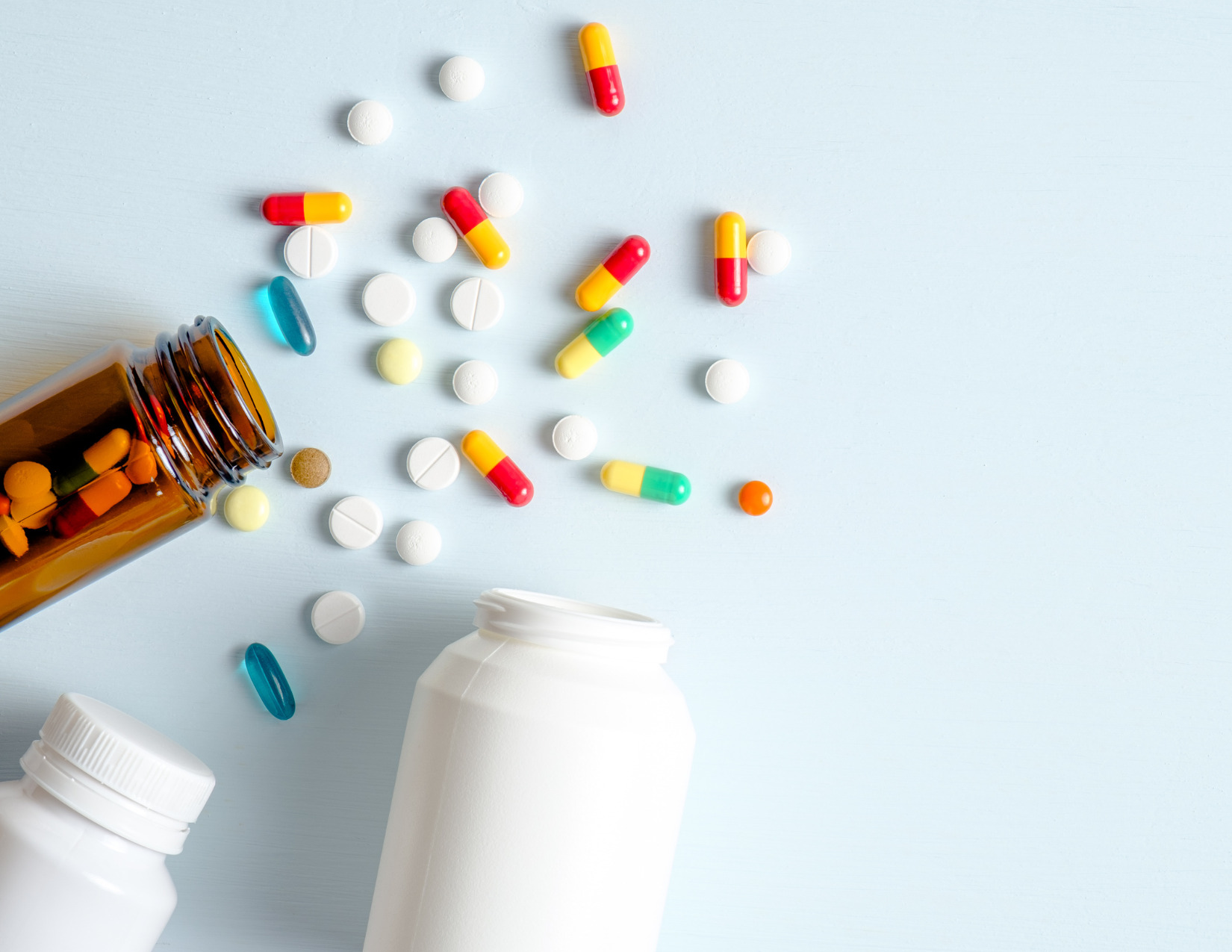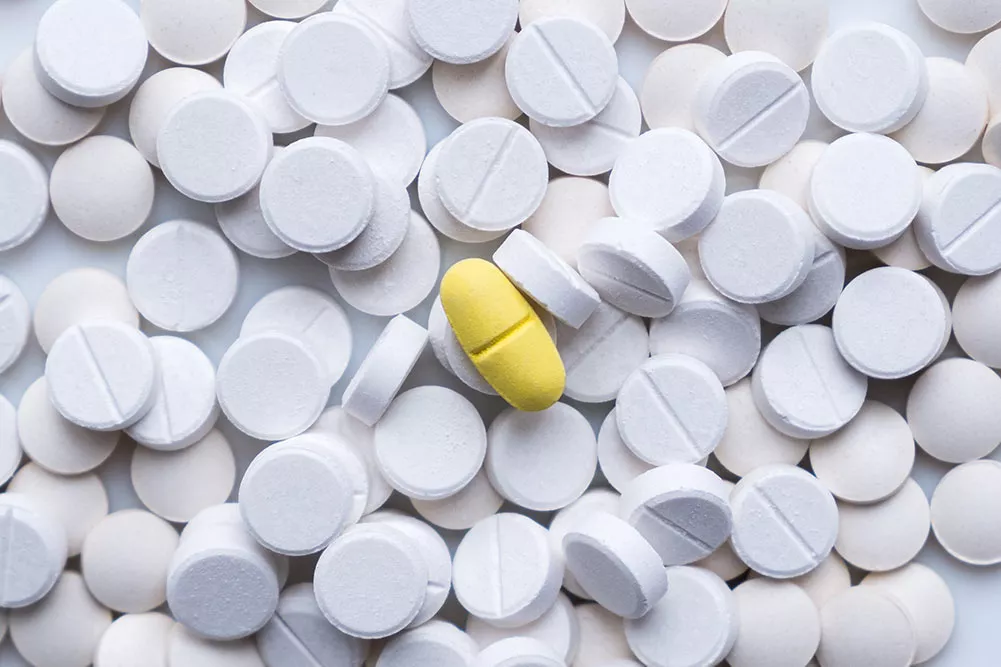While substance use is on the rise in many communities, perhaps one of the most alarming trends is the prevalence of SUD amongst pregnant or expecting parents. Since 2004, Maternal Opioid Use Disorder has increased by more than 400%. Unfortunately, pregnant people also face more barriers to accessing addiction treatment than others. While seeking treatment is often intimidating for any person, pregnant people face fears of intensified judgment from doctors and potential legal repercussions, particularly losing custody of their children. This anxiety is often exacerbated by aggressive, insensitive posters at OBGYN offices that advertise a refusal to treat those afflicted by addiction.
These barriers to treatment make SUD out to be a morally charged issue, which it is not. Using terms like “substance abuse”, rather than recognizing addiction as a true disorder only adds to the stigma people face. Judgment from family, friends, and even doctors makes it more difficult for people to seek treatment during pregnancy, which leads many to take matters into their own hands. Unhealthy at-home treatments, including detoxing while pregnant, can be incredibly dangerous.
*Any recommendation for detox for pregnant women should be made and overseen by a medical professional familiar with the risks involved in such a process, both for the parent and child.
Seeking treatment for SUD should not be shamed, especially during pregnancy. Instead of seeing pregnancy as a barrier to treatment, it should be viewed as a major opportunity for expecting parents and their family members to embark on a recovery journey as they prepare for an inevitable life change with the birth of the baby. Evidence-based, whole-person addiction treatment is an approach that will change the lives of both the parent and child forever.
Substance use disorders (SUD) are a type of disorder that impacts a person’s brain chemistry and leads to an inability to control the use of certain substances. While past rhetoric or depictions in the media often associate selfishness or intentionality, referring to the disorder as “substance abuse” or other harmful names, it is not a moral shortcoming or misbehavior. Rather, it is a physical dependence on substances that the brain develops.
Substance use disorders can affect anyone at any time. Those with a family history of SUD and/or untreated mental health symptoms are most at risk of developing a substance use disorder.
During pregnancy, substance use disorders can be incredibly stressful on both the physical and mental health of an expecting parent. The added stress of pregnancy and raising children can heighten this risk of developing substance use disorder, too.
Drugs that are most commonly misused during pregnancy include:
Because the growing fetus is often sensitive to much smaller amounts of common substances, even medication unrelated to an existing substance use disorder that may have been prescribed before pregnancy for things like mental health issues, high blood pressure, seizures, arthritis, and acne, can be harmful during pregnancy, so it’s always important to have open discussions with your doctor about what you’re taking throughout pregnancy.
Misuse of any substance during pregnancy can lead to major health problems for both the mother and baby. Babies of parents who maintained substance use throughout pregnancy are more at risk for several medical problems, including prematurity, low birth weight, birth defects, substance dependence, and more.
Stillbirth is unfortunately another major risk that drastically increases with substance use. Parents who use tobacco, marijuana, stimulants, or prescription pain relievers during pregnancy are more than twice as likely to experience stillbirth compared to other people.
Smoking and drinking alcohol while pregnant, specifically after the first trimester, can have major impacts on the child after birth. Sudden Infant Death Syndrome (SIDS) risk has been shown to increase by nearly 1200% for children born to a parent who both smoked and drank after their first trimester, compared with those whose birthing parent didn’t or stopped after the first trimester.
While many focus specifically on the negative impacts substance use has on a baby during pregnancy, the use of drugs and alcohol while pregnant can also have major health consequences for the pregnant person, like preeclampsia, gestational hypertension, respiratory problems, toxemia, and death.
Pregnancy itself, even without substance use, is a very tough thing for a person’s body. Most people face a lot of pain and stress while growing a baby as they deal with common side effects, like morning sickness, body aches, exhaustion, and more, while processing the emotional weight of becoming a parent or adding to their family. Misusing drugs or alcohol while pregnant can intensify the stress put on your body.
Even after birth, substance misuse can have harmful physical effects on both the child and parent, especially if breastfeeding. It can also lead to further long-term impacts on the parent-child relationship if continued indefinitely. If you or a loved one think you may be experiencing substance use disorder or are at risk for developing a substance use disorder, you should have an open talk with your doctor as soon as possible in pregnancy. Your doctor can work with you to manage your addiction and build a recovery plan that is best for you and your baby.
While SUD treatment can be intimidating at first, many doctors and treatment centers are willing and able to effectively care for those experiencing addiction during pregnancy.
Your first step before doing ANYTHING regarding your substance use should always be to have an open, honest conversation with your doctor and voice your desire for support. While most pregnant people may attempt detoxing on their own, this sudden stop in use could be harmful, particularly in the case of Opioid Use Disorder. Detoxing while pregnant should only be done under the guidance of a trained physician, specifically one who is familiar with detox for pregnant women and others.
Instead of attempting an at-home detox, pick up the phone and call your doctor to set up an urgent appointment. Your doctor is more likely to have comprehensive and long-term knowledge about your health and can come up with a plan that is safe for you and the baby.
If you don’t have an existing doctor or have reason to believe that your doctor wouldn’t be the best source of help for addiction treatment, your first step should be to look for treatment centers near you that are able to provide care during pregnancy. You can do this by visiting FindTreatment.gov or calling SAMHSA’s Treatment Referral Routing Service at 1-800-662-HELP (4357).

At Eleanor Health, we offer addiction treatment during pregnancy. We’re currently providing care in several states and are expanding rapidly.
Eleanor Health’s care team, which includes an on-staff OBGYN, addiction medicine practitioners, psychiatrists, therapists, nurses, and community recovery partners, is ready to provide care and support you so you can have a healthy pregnancy and reach your long-term recovery goals.
Here’s what you can expect at Eleanor:
We also understand that the demands of parenthood don’t stop for recovery. To help make your care more convenient, we welcome babies in our clinics and invite you to bring your newborn to your appointments once you’ve given birth.
Once you find a treatment center that is able to provide care during pregnancy, call them and have an open discussion about your substance use. If your doctor has referred you to a treatment center, expect that they’ll take the lead. Ask questions about forms of payment, insurance options, and potential scholarships. A good addiction treatment center will ensure that cost is not a barrier to your treatment and lifelong recovery.
Your doctor or treatment center will also ensure that you have access to an OBGYN for direct pregnancy care throughout your recovery, either by working with your existing OBGYN or by finding one who is suited for SUD care. This care is crucial in pregnancy, particularly a higher-risk pregnancy, like one with active substance use disorder. OBGYNs can ensure that both you and your baby are as healthy as possible each step of the way.
Your doctor and treatment center or program will be able to share the next steps for your recovery process. Potential steps may include attending an intake appointment to assess your current status, working with a doctor to create goals that inspire you and help you meet your personal checkpoints along the way, joining support groups that allow you to connect with people in a similar situation, and more.
You should also be intentional in asking your doctor or treatment center about their approach to mental health in recovery. Caring for mental health, in addition to physical health, is also a vital part of recovery during pregnancy. Most addiction treatment centers that focus on whole-person care will include this in treatment. For many people, addiction and substance misuse is a symptom of a larger mental health issue. For others, their substance use has led them to develop accompanying disorders. When mental health issues aren’t given proper attention while treating addiction in pregnancy, it’s much harder for a person to maintain their recovery postpartum, since mental health is often majorly impacted by the birth of a child. The goal of any effective, supportive treatment program should be long-term recovery to benefit both the baby and the mother’s lives permanently. If this care is not automatically included in your treatment program, ask your doctor for a referral to a counselor or therapist who specializes in substance use disorder and could help fill this important role.
Some medications for addiction treatment can be safe to use in moderation for curbing cravings or reducing withdrawal symptoms during pregnancy and while breastfeeding, like methadone and buprenorphine. However, this is dependent on many factors, which is why treatment should be tailored to fit each person’s individual needs. Your doctor or addiction treatment center will help come up with the right plan to fit your physical, mental, and other health needs for long-term recovery.
Welcoming a new child is exciting, but it also comes with a whirlwind of change. For those in recovery from a substance use disorder, relapse can be common after the birth of the child, particularly if the new parent doesn’t have an active support system in their recovery. The added stress of new responsibilities, sleep deprivation, physical and hormonal changes, and much more, can be incredibly overwhelming, so it’s important for expecting parents to anticipate this risk in advance and prepare with their doctor and recovery team. Creating a plan for addressing this stress through child care assistance, increased counseling, mindfulness practices, helpful routines, and more, can prevent much of the stress and reduce your risk of relapse.
Substance use disorder (SUD) can affect anyone at any time – but you can get help and find long-term recovery. You deserve to recover so you can enjoy the changes life is bringing you. Let pregnancy be a new start for you and your family. Talk to your doctor today about your options for addiction treatment so you can find the care you need to recover for life.

Sources:
How can I find appropriate treatment while pregnant?
Talk to your doctor, if you feel comfortable, or look for addiction treatment centers in your area. If you can, reach out to a trusted friend or family member who can help support you in this process.
Contact us at Eleanor Health or try one of the following resources:
SAMHSA’s Treatment Referral Routing Service: 1-800-662-HELP (4357)
https://www.findtreatment.gov/
Where can I learn about detoxing while pregnant?
Talk to your doctor before doing anything else. Detox for pregnant women is often a bad idea, at least without the guidance of a trained professional. Stopping substance use suddenly, especially in the case of Opioid Use Disorder (OUD), is not always recommended, since it can have serious consequences relating to the health of the pregnant person or fetus. However, there are medications you can take during pregnancy to help aid in your recovery.
Can I take methadone during pregnancy?
Can I take methadone while breastfeeding?
Is buprenorphine safe during pregnancy?
Can I breastfeed while taking buprenorphine?
Can I take Suboxone during pregnancy?
Learn more at: https://ncpoep.org/guidance-document/north-carolina-guidelines-medication-assisted-treatment-mat-in-pregnancy/medication-management/
Can I take naltrexone during pregnancy?
Learn more here: https://pubmed.ncbi.nlm.nih.gov/31376396/
If you are seeking help with your loved one’s addiction, contact us today or complete our quick contact form below, to speak with an addiction treatment specialist.
If you need help with your substance use disorder, we are here to help you build your confidence and momentum towards the future you want. We provide treatment services for adults with alcohol, opioid, and other substance use disorders. We are currently located in Louisiana, Massachusetts, New Jersey, North Carolina, Ohio, Texas, and Washington.
 Suboxone While Pregnant – Is it safe?
Suboxone While Pregnant – Is it safe?
 Medications for Anxiety and Depression: An Essential Medication Guide
Medications for Anxiety and Depression: An Essential Medication Guide
 Naltrexone Uses in Addiction Treatment
Naltrexone Uses in Addiction Treatment